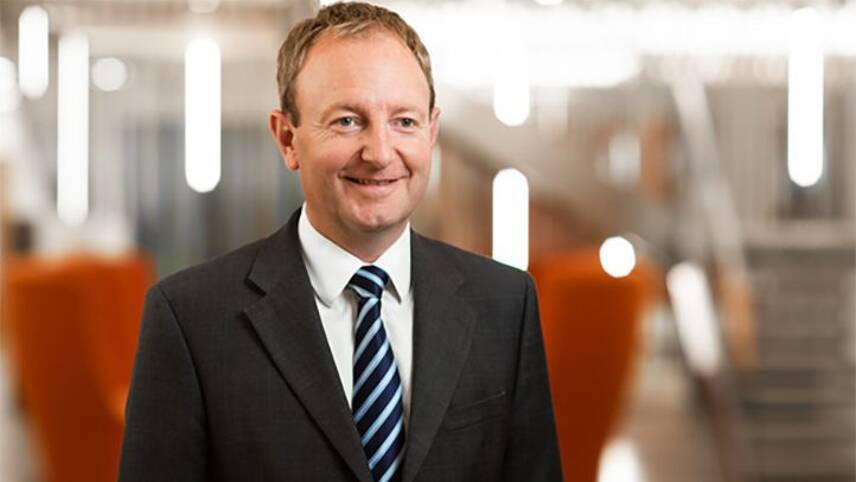Register for free and continue reading
Join our growing army of changemakers and get unlimited access to our premium content

Pictured: Aviva Investors' CEO Mark Versey
The firm, which manages more than £262bn of assets, has urged the chairs and executives at all businesses in which it invests to show urgency on issues including the climate crisis, biodiversity loss and human rights.
Specifically, it is calling on the businesses to publish detailed biodiversity, net-zero and human rights-related actions plans, and to link executive pay to the delivery of these plans. Net-zero plans are notably set to become a legal requirement for large, high-emitting businesses in the UK – where Aviva Investors is based – from 2023.
Should businesses fail to take these actions, the letter makes it clear that Aviva Investors can and will vote against them this AGM season. It emphasises how Aviva Investors opposed board members at 85 firms in 2021 over human rights concerns, and a further 137 firms over a lack of diversity on company boards.
Aviva Investors invests in more than 1,500 companies in 30 countries. Each is set to receive a tailored letter detailing this call to action, first made in the firm’s annual letter from chief executive Mark Versey this weekend.
“We acknowledge the magnitude of many of these challenges and will evaluate companies on the strength of their commitments and their ability to demonstrate progress over time…However, we will hold boards and individual directors accountable where the pace of change does not reflect the urgency required,” the letter summarises.
“To tackle a systemic risk such as Covid-19, the global response needed to be proportionate, coordinated and immediate. There are clear parallels with what is required to confront the looming climate and biodiversity emergency. Any further delay in collective and individual climate action and efforts to protect rapidly depleting natural resources could prove catastrophic. “
The letter lists five issues that Veresy has stated will “guide” Aviva’s investment decisions and voting at AGMs, namely stakeholder business models; diversity and social inclusion; executive pay; climate change and effective, dynamic leadership. This latter topic looks at how businesses are responding to challenges including new green policy, changing consumer demands and digital technology.
Stakeholder business models, the first topic listed, was also a key focus in the recent annual letter from BlackRock boss Larry Fink. Fink wrote earlier this month that “stakeholder capitalism is not about politics. It is not a social or ideological agenda. It is not ‘woke”.
On climate change, Veresy’s letter sets out clear expectations for businesses. It urges them to set net-zero goals for 2050 or sooner and to support them with credible science-based targets. It emphasises that climate goals cannot exist in a silo and must be backed by adequate plans for investment and reskilling or upskilling. Also highlighted is the need to measure and disclose climate risk.
Net-Zero Asset Owner Alliance
In related news, the UN-Convened Net-Zero Asset Owner Alliance has published an update to its target-setting protocol, imploring asset owner members to set more ambitious interim targets on the long-term journey to net-zero portfolio emissions.
For most asset managers, portfolio emissions account for 95% or more of the businesses’ overall emissions footprint.
The updated protocol recommends that all asset owners should strive to reduce their absolute emissions by at least 49% by 2030, against a 2020 baseline, aiming for a 65% reduction if possible. The Intergovernmental Panel on Climate Change (IPCC) notably stated in 2018 that, to give humanity the best chance at capping the global temperature increase to 1.5C, emissions globally should be halved by 2030.
Also included in the updated protocol is advice for investors developing sector-specific decarbonisation goals for high-emitting sectors including agriculture, chemicals, concrete and aluminium. Advice was already available for sectors including energy, transport and steel.
The Alliance said the new guidance “reflects the speed at which all parts of the economy need to decarbonise”. The initiative notably covers 69 member firms, collectively managing more than $6.6trn of assets.
The news comes on the same day that McKinsey has released new research on the investment needed to deliver a science-based net-zero transition. A headline finding is that $9trn is needed annually through to 2050, but that a net-ain in jobs and for the economy would be delivered in a well-managed transition.
Last AGM season, edie published a feature exploring how climate-related shareholder resolutions progress. You can read that article in full here.
Sarah George


The direction of travel couldn’t be more clear. The carrot seems to have been firmly composted. Enter the day of the stick (FSC…naturally)